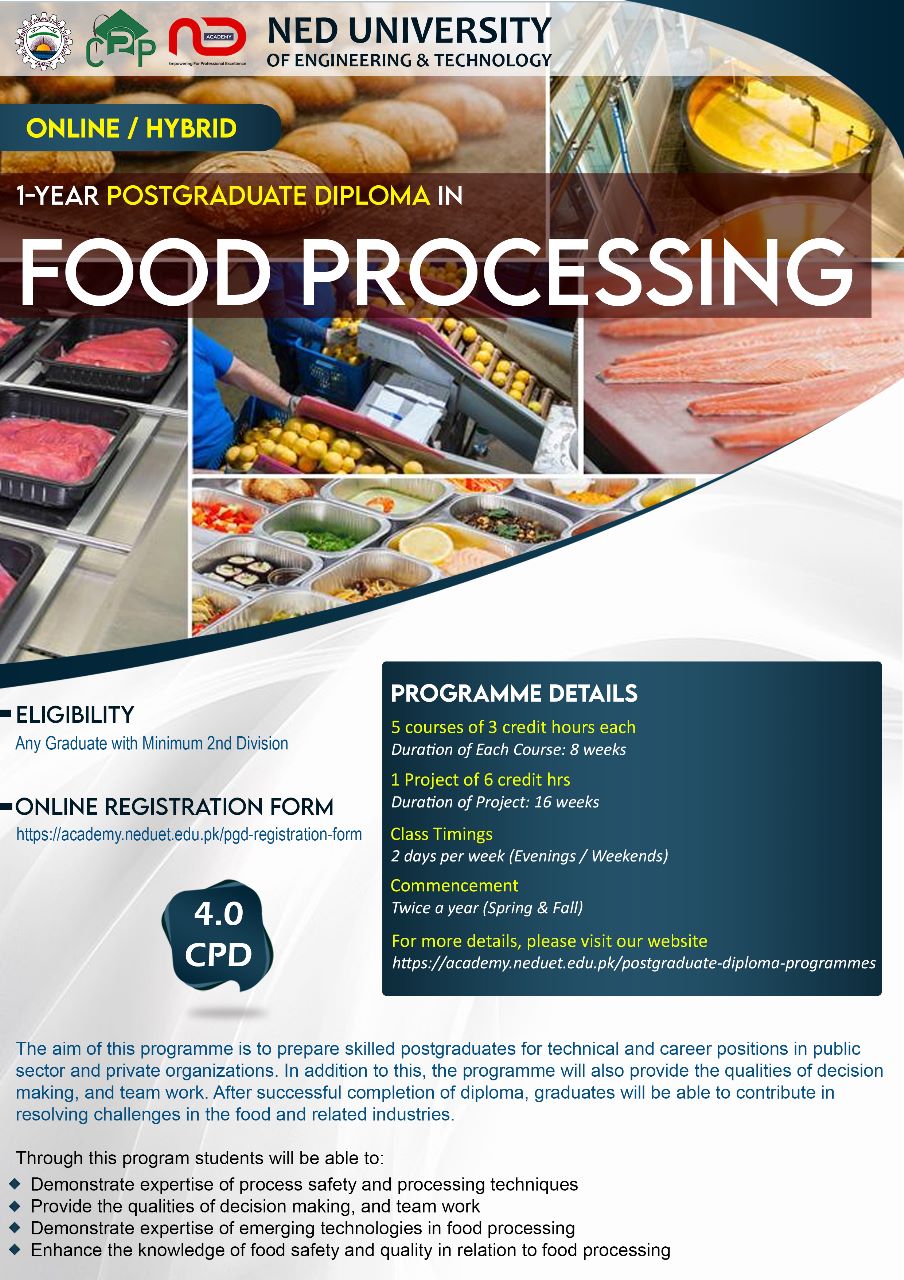ABOUT COURSE
Course 1. ADVANCED UNIT OPERATIONS
Introduction: Introduction to unit operations, basic principles of unit operation in food process engineering Material & Energy balance: Material and energy balances, material handling and related preliminary operations Recent Developments in unit operations: Cleaning, wet cleaning, dry cleaning, sorting, grading, mechanical separation, grinding, screening sieves, equipment and use, separation of coarse particle in liquid sedimentation and thickening centrifugal and settling process, membrane separation, distillation, osmosis and reverse osmosis, evaporation, food freezing, super cooling, crystallization, refrigeration, methods of quick freezing, freezing by indirect contact with refrigerant, air blast freezing, freezing by direct immersion
Course 2. PROCESS SAFETY MANAGEMENT
Risk Management: Risk perception, acceptable risk, risk rating and ranking, risk matrix , Chemical process accidents. Standards and regulations, Impact of standards and regulations, OSHA, process safety management standard, PSM and Risk Management Professional (RMP) background based case studies. Introduction to the 14 Elements, OSHA PSM Requirement – Process Hazard Analysis (PHA), Difference between PSM and OSHA Regulations Toxicological studies: Routes of entry, Causes and Effects, Toxicological studies, Models of doses, Response curves, Threshold limit values, Liquid discharge, Vapour discharge, Flashing liquids, Pool evaporation Design basis, Dispersion models, Weather effects Release mitigation HAZOP Studies: Deviations from normal operation, Hazard and Operability Studies (HAZOP), Permit to work systems (PTWs). Event tree analysis, Fault tree analysis, Bow tie analysis Investigation Methodologies: Determining Root Causes, Structured Approach Developing Effective Recommendations. Learning from accidents, Investigation process and reporting. Fire Safety: Fire triangle, Flammability characteristics of liquids and vapours, Ignition, Fire effects, Explosion mechanisms, Fixed and portable fire extinguishers, Fire- Water System Design Case studies
Course 3. SAFETY AND QUALITY IN THE FOOD PROCESSING
Food safety: Hazards, Food born toxic agents, Food born illness Adulterants and its relation to food safety: Food additives, Packaging materials, Toxicants induced during food processing, Toxicants induced from industrial waste Overview of quality management systems: HACCP, Quality Management System, Food Safety Management System, Environmental Management System Statistical Process Control: Quality control tools and its implementation in food processing
Course 4. EMERGING TECHNOLOGIES FOR FOOD PROCESSING
High Pressure Processing of Foods: Principles of high pressure processing, Use of high pressure to improve food safety and stability, Applications of high pressure processing Minimal Processing of Food: Minimal Fresh Processing of Vegetables, Modified Atmosphere Packaging for Minimally Processed Foods Innovations in Food Refrigeration: Vacuum Cooling of Foods, Vacuum cooling principles, process and equipment, Applications of vacuum cooling in the food industry, Ultrasonic Assistance of Food Freezing, Major functions of power ultrasound in assisting food freezing Pulsed Electric Field Processing: Overview of Pulsed Electric Field Processing for Food, PEF treatment systems and processing parameters, Application of pulsed Electric Field processing Non-conventional Processing Techniques: Osmotic Dehydration, High intensity Pulsed Light,Radia Frequency, Ultrasound, Food Irradiation, Microwave heating, Ohmic heating
Course 5. FUNCTIONAL FOODS
Basics of Functional Foods: Defining Functional Foods and Associated Claims, Consumers and health claims for functional foods, Safety and Toxicity of Functional Foods Functional foods and health: Acute gastrointestinal infections, coronary heart disease, Anti-tumour properties, Obesity, Diabetes, Bone health Developing functional food products: Probiotic functional foods, Functional meat products, Functional soy products, Functional seafood products, Dietary fibre functional products


